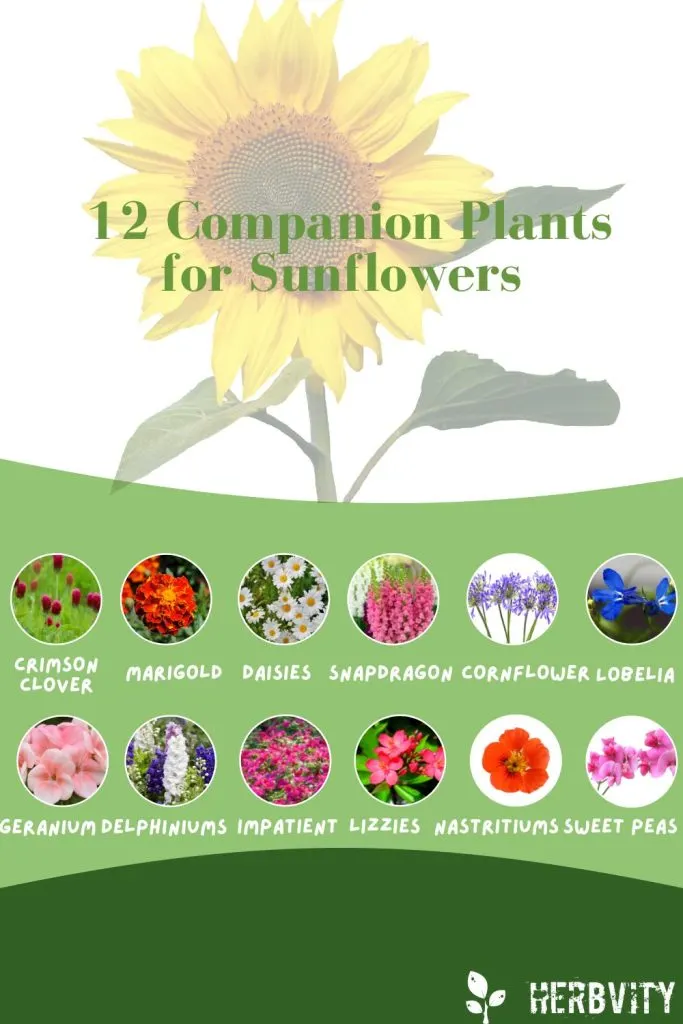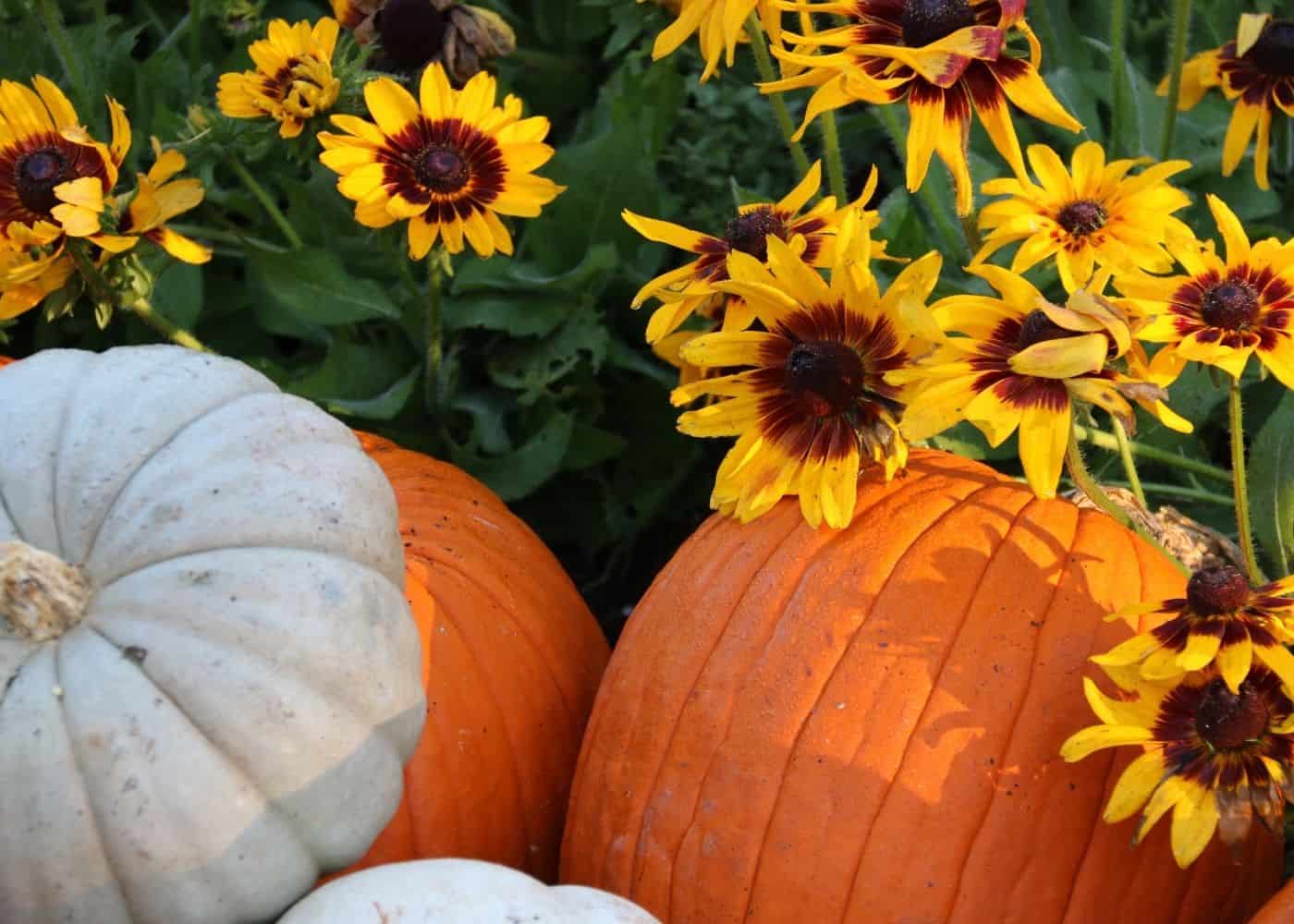Best Sunflower Companion Vegetables For A Healthy Garden
Title: Best Sunflower Companion Vegetables for a Healthy Garden
Introduction:
Sunflowers are a beautiful and versatile flower that can add a touch of brightness to any garden. But did you know that they can also be beneficial to other plants in your garden? Companion planting is the practice of planting different types of plants together that benefit each other in some way. When it comes to sunflowers, there are a number of vegetables that make great companions.
In this blog post, we will discuss the best sunflower companion vegetables and how they can help each other thrive. We will also provide some tips on how to plant and care for these companion plants.
Main Content:
Sunflowers as Providers
Sunflowers are known as "providers" in companion planting. This means that they provide benefits to other plants in the garden. Some of the benefits that sunflowers provide include:
- Shade: Sunflowers can provide shade for other plants, especially those that prefer cooler conditions, such as lettuce and spinach.
- Attract pollinators: Sunflowers are a magnet for pollinators, such as bees and butterflies. These pollinators help to pollinate other plants in the garden, which leads to increased yields.
- Improve soil quality: Sunflowers have deep roots that help to break up compacted soil and improve drainage. They also fix nitrogen in the soil, which is a nutrient that other plants need to grow.
Vegetables that Benefit from Sunflowers
There are a number of vegetables that benefit from planting near sunflowers. Some of the best sunflower companion vegetables include:
- Lettuce: Lettuce prefers cooler conditions, and sunflowers can provide shade to help it thrive.
- Summer squash: Summer squash is another vegetable that prefers cooler conditions. Sunflowers can provide shade and also help to deter pests.
- Cucumbers: Cucumbers and sunflowers are a natural pairing. They both need full sun, and sunflowers can help to provide support for cucumbers.
- Pumpkins: Pumpkins are heavy feeders, and sunflowers can help to improve the soil quality around them.
- Tomatoes: Sunflowers can help to attract pollinators to tomatoes, which can lead to increased yields.
Tips for Planting and Caring for Sunflower Companion Plants
When planting sunflower companion plants, it is important to consider the needs of both plants. For example, if you are planting lettuce with sunflowers, make sure that the lettuce has enough space to grow in the shade of the sunflowers. You should also water both plants regularly, as they will both need moisture to thrive.
Here are some additional tips for planting and caring for sunflower companion plants:
- Plant sunflowers and their companions in full sun.
- Space the plants according to their mature size.
- Water regularly, especially during hot, dry weather.
- Fertilize the plants as needed.
- Remove any weeds that compete with the plants.
Conclusion
Sunflowers can be a valuable addition to any garden. Not only are they beautiful, but they can also help to improve the health of other plants in the garden. By planting sunflowers with the right companion vegetables, you can create a thriving and productive garden.
Sunflowers are beautiful flowers that can add a touch of sunshine to any garden. But did you know that they can also be beneficial to other plants? Companion planting is a gardening technique that involves planting certain plants together for mutual benefit. Some of the best companion plants for sunflowers include:
- Lettuce: Lettuce enjoys some shade, especially in the heat of summer. Sunflowers can provide the shade that lettuce needs, while lettuce can help to suppress weeds and keep the soil cool.
- Peas: Peas are nitrogen-fixing plants, which means they can add nitrogen to the soil. This can benefit sunflowers, which don't require a lot of fertilizer.
- Beans: Beans are also nitrogen-fixing plants. They can help to improve the drainage of the soil, which can benefit sunflowers.
- Squash: Squash vines can climb up sunflower stalks, which can help to support the vines and keep them off the ground.
- Cucumbers: Cucumbers and sunflowers are both tall plants, so they can be planted together to save space in the garden.
For more information about sunflower companion vegetables, visit this website: https://www.gardeningknowhow.com/ornamental/flowers/sunflower/sunflower-companions.htm.
FAQ of sunflower companion vegetables
- What are some good companion vegetables for sunflowers?
Some good companion vegetables for sunflowers include:
* Lettuce: Lettuce enjoys some shade, especially in the heat of summer, so planting it under sunflowers is a good way to protect it from the sun. Lettuce also helps to suppress weeds and attract beneficial insects.
* Peas: Peas are nitrogen-fixing plants, which means they can help to improve the soil quality for sunflowers. They also provide shade for sunflower seedlings.
* Tomatoes: Sunflowers attract beneficial insects, such as ladybugs, which can help to control pests that damage tomatoes. Sunflowers also provide shade for tomatoes in the afternoon, when the sun is strongest.
* Corn: Corn and sunflowers are both tall plants, so they can help to support each other. Corn also provides shade for sunflower seedlings.
* Squash: Squash and sunflowers have similar growing requirements, so they can be planted together. Squash also helps to suppress weeds and attract beneficial insects.
- What vegetables should not be planted near sunflowers?
Some vegetables that should not be planted near sunflowers include:
* Pole beans: Pole beans need a lot of space to grow, and they can compete with sunflowers for sunlight and water.
* Potatoes: Potatoes are susceptible to a fungus called early blight, which can also affect sunflowers.
* Fennel: Fennel has a strong odor that can repel pollinators, which are important for sunflowers to produce seeds.
- How do sunflowers benefit other vegetables?
Sunflowers can benefit other vegetables in a number of ways:
* They attract beneficial insects, such as ladybugs, lacewings, and parasitic wasps, which can help to control pests that damage other vegetables.
* They provide shade for other vegetables, especially in the heat of summer.
* They help to suppress weeds by blocking out sunlight.
* They improve the soil quality by adding organic matter and nitrogen.
- What are some tips for companion planting sunflowers with vegetables?
Here are some tips for companion planting sunflowers with vegetables:
* Plant sunflowers in full sun.
* Plant sunflowers with vegetables that have similar growing requirements.
* Space sunflowers and vegetables appropriately, giving them enough room to grow.
* Water sunflowers and vegetables regularly.
* Fertilize sunflowers and vegetables as needed.
* Monitor sunflowers and vegetables for pests and diseases, and take action as needed.
Image of sunflower companion vegetables
10 different images of sunflower companion vegetables that are free to use:
- Crimson clover is a nitrogen-fixing plant that can help to improve the soil quality for sunflowers. It also attracts pollinators, which helps to increase sunflower yields.

- Pumpkins and squash are both heavy feeders, so they can benefit from the nutrients that sunflowers bring to the soil. They also help to shade the soil, which can help to keep it cool and moist.


- Corn is another heavy feeder that can benefit from the nutrients that sunflowers provide. Corn also helps to provide support for sunflowers, which can help to prevent them from toppling over in the wind.

- Lettuce is a cool-season crop that can benefit from the shade that sunflowers provide. Lettuce also helps to attract pollinators, which can help to increase sunflower yields.

- Tomatoes are a warm-season crop that can benefit from the shade that sunflowers provide in the afternoon. Tomatoes also help to attract pollinators, which can help to increase sunflower yields.

- Carrots are a root vegetable that can benefit from the loose, well-drained soil that sunflowers create. Carrots also help to suppress weeds, which can free up sunflowers to focus on growing.

- Peas are a nitrogen-fixing plant that can help to improve the soil quality for sunflowers. Peas also help to suppress weeds, which can free up sunflowers to focus on growing.

- Basil is a herb that can help to repel pests from sunflowers. Basil also attracts pollinators, which can help to increase sunflower yields.

- Marigolds are a flowering plant that can help to repel pests from sunflowers. Marigolds also attract pollinators, which can help to increase sunflower yields.

- Nasturtiums are a flowering plant that can help to repel pests from sunflowers. Nasturtiums also attract pollinators, which can help to increase sunflower yields.

Post a Comment for " Best Sunflower Companion Vegetables For A Healthy Garden"